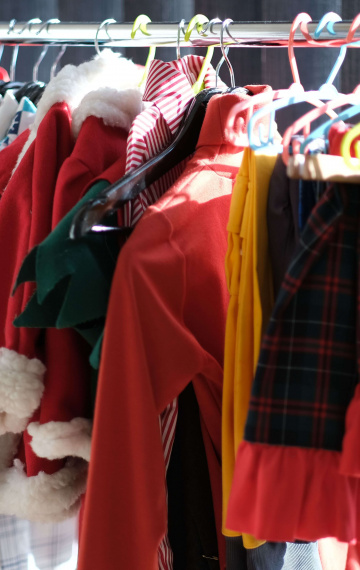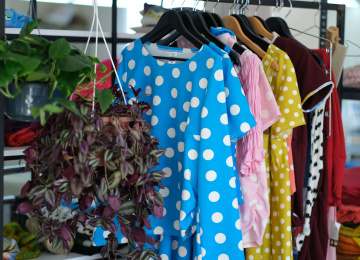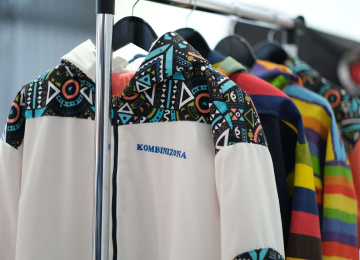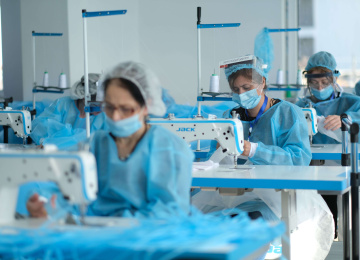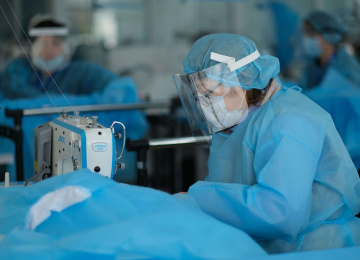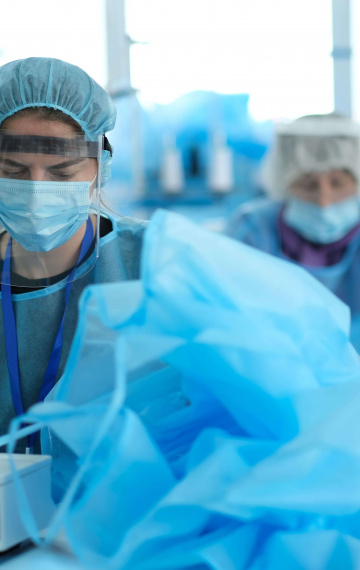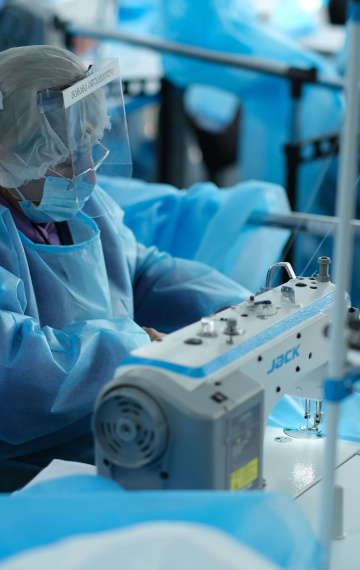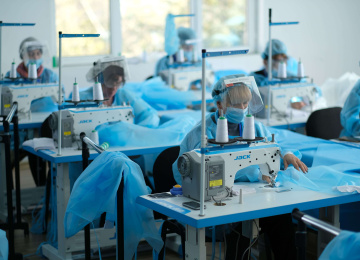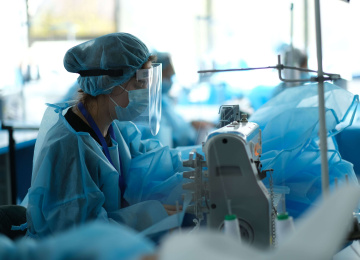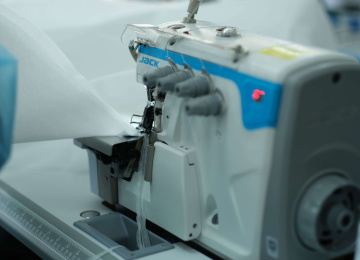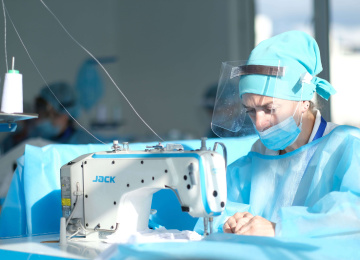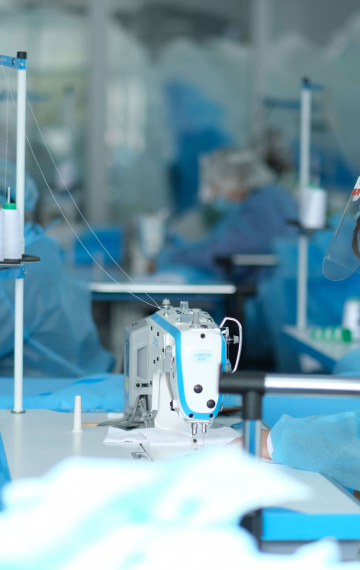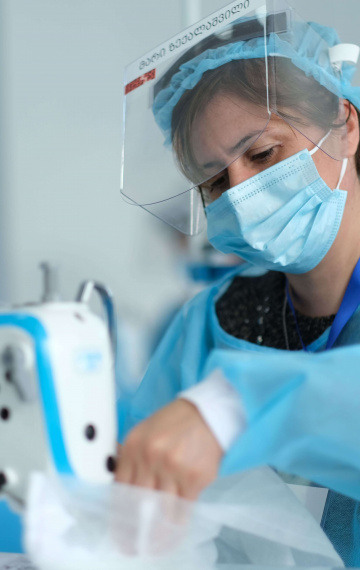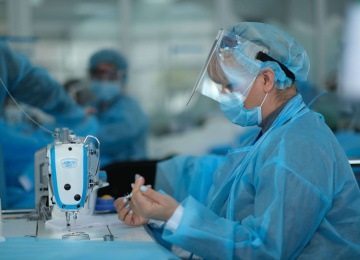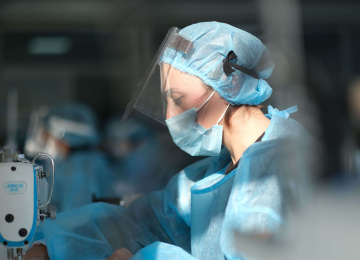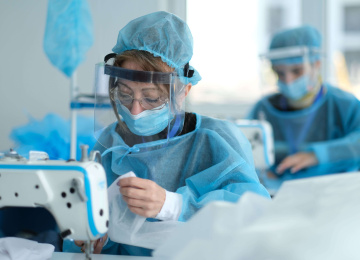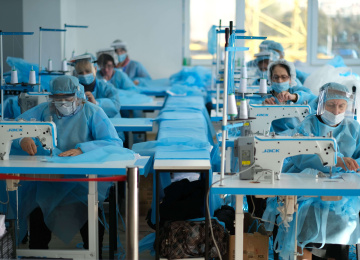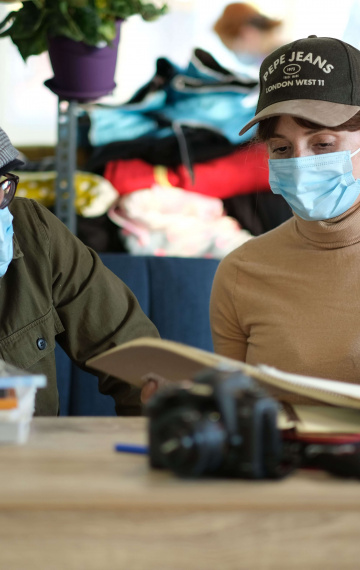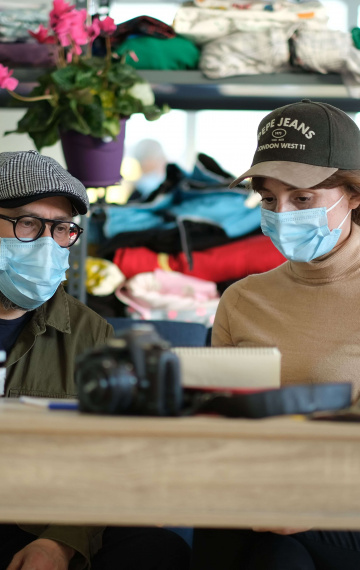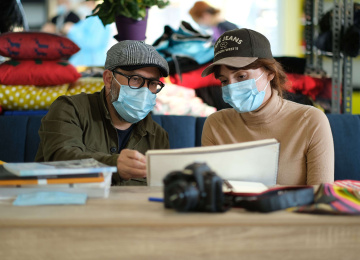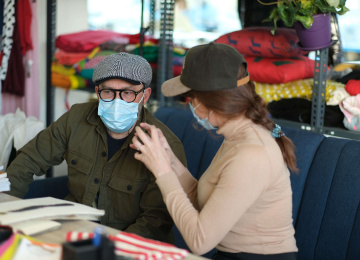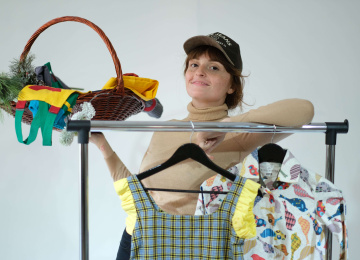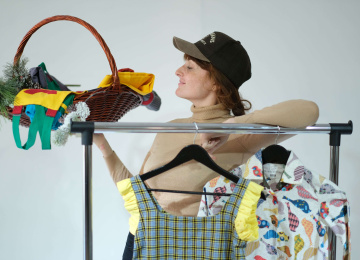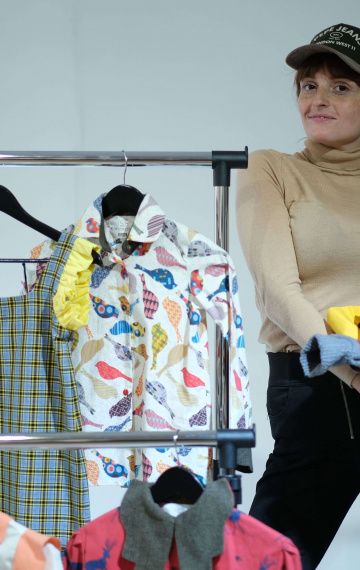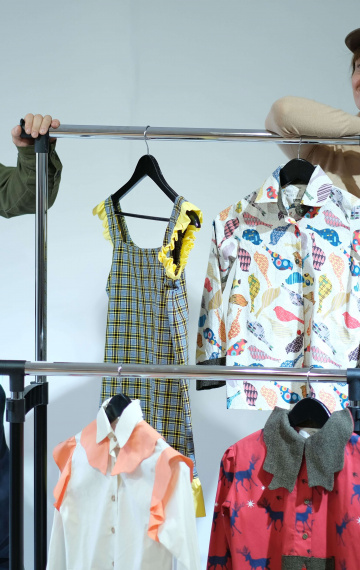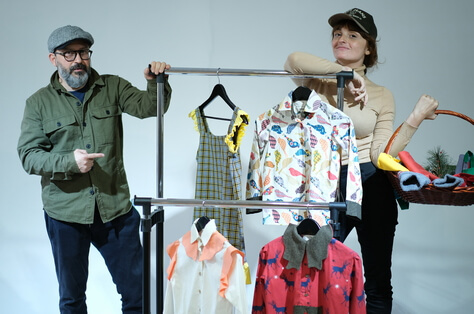
Have you ever thought about the emotional impact a colour and its many shades might have on a person? In fact, specific colour blends do affect the mood and sometimes help people handle health or emotional problems better. Kombinizona produces therapeutic clothing based on precise colour perceptions, targeting women, teens, children, and people with disabilities.
When the pandemic challenged the garment industry, EU4Business and GIZ helped Kombinizona quickly adjust to the new reality. Through the Clusters4Development project, the company was able to actually increase its capacity, expand its workforce, and shift production to making antibacterial face masks and protective gear—the most in-demand product in shortage during the initial crisis.
Lobbying equality, inclusiveness and happiness
Kombinizona started with a 10-year action plan, a single borrowed sewing machine and a strong marketing concept in a small showroom back in 2017. The first therapeutic clothing collection produced by this socially active, functionally different, unique apparel brand with serious potential for international success was initially launched on the basis of research on colour perception.
“A lobbyist for equality, inclusiveness and happiness with a big focus on social responsibility is how we saw our brand and the strange sketches of my childhood,” says Gano Melitauri, Kombinizona’s founder.
The first design collection by Kombinizona sold out in just two weeks and was an unexpected success. Since then, the company remains devoted to its mission: to bring inclusion to the fashion industry and raise awareness about people with disabilities, pregnant women and adolescents while supporting functionality, open-mindedness, and moral values. The brand aims to help people better express themselves, be more motivated and fulfilled, and improve their daily lives with a wide range of insights.
From clothing to medical gear
In response to the coronavirus crisis, Kombinizona has developed a truly innovative business model. With the help of the EU4Business and the German government’s Clusters4Development project, the enterprise bought 19 sewing machines, expanded production capacity, launched a second protective clothing brand called “Alikapi,” and swiftly started production of facemasks, robes and coveralls at affordable prices. Together with its experienced tailors, additional staff including people with disabilities were employed remotely. The apparel brand wanted to respond effectively to the countrywide shortage of medical gear. Thus, Kombinizona launched the #1yours1mine campaign, channelling 30% of its income to charity.
“The EU support helped us in procuring equipment, so the production did not have to stop, and we employed more people, produced more PPE, distributed lots of free masks, and ultimately contributed to helping the country overcome the crisis,” says Melitauri.
Through EU4Business-GIZ support, Kombinizona even achieved new milestones in productivity and machinery. The company now employs 60-70, half of them PWD, and is contributing to increasing employment in the country and improving quality of life for PWDs.
Empowering the garment industry during Covid-19
Kombinizona is simply one example of SMEs supported by EU4Business and GIZ during the pandemic. Assistance to buy necessary equipment was provided to another apparel brand, Doctor Goods, the only company in Georgia that specializes in making sterile and non-sterile single-use medical textiles for surgical procedures and post-operative care. In order for Doctor Goods to increase its production capacity and meet the high demand for these products during the crisis, C4D provided funding for the procurement of 12 new sewing machines for the company, which allowed it to produce 40,000 medical gowns in a week’s time. Overall, the EU project has helped 40 partner entrepreneurs in the garment industry with guidance on how to pursue commercial activities and remain operational.
With the EU support, the Georgian Apparel and Fashion Association (GAFA) was set up, uniting over 20 textile producers, fashion designers, factories and ateliers. GAFA positions itself as cluster supporting and enhancing high quality, environmentally friendly and sustainable apparel and textiles. Through GAFA, different stakeholders within Georgia’s garment industry can support and collaborate with each other, develop eco-friendly production, increase exports, raise awareness of their brands/products by participating in trade shows and expositions, online markets and advance digital tools—an aspect that has become vital during the pandemic. GAFA will help garment-makers improve their competitiveness, generate new jobs, and contribute to overall sector development in the country.

